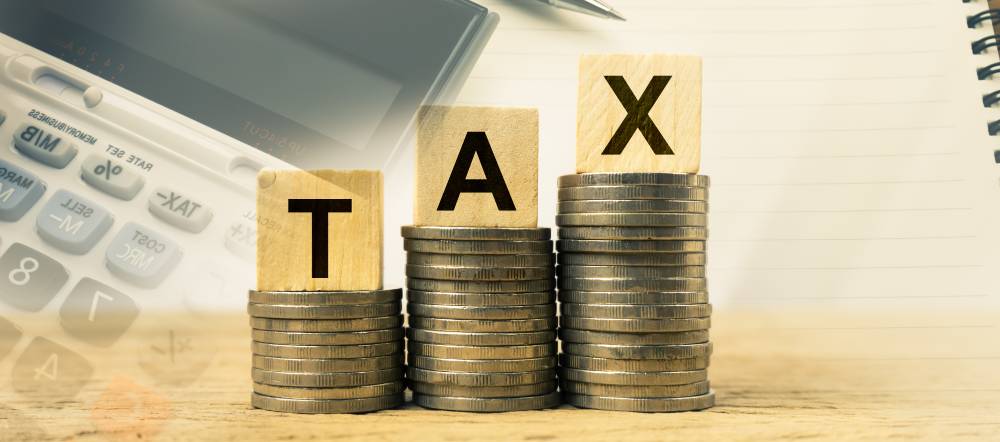Singapore Income Tax for Foreigners: Essential Rates and Tips

To correctly calculate Singapore income tax for foreigners you must know a few things. The duration of your stay in Singapore determines whether you are a tax resident or a non-resident.
Your residency status affects the tax rate applicable to you. Let us dive in and know what tax residency is and how to file your Singapore income tax without any hassles.
You, as a foreigner, are a tax resident if your work stay or physical presence in Singapore in the preceding calendar year is at least 183 days long. What happens if your employment spans across two consecutive years?
The authorities check if your continuous employment stay spans across two calendar years. If you are a non-resident with such a record and have stayed in Singapore for at least 183 days, they upgrade your status to that of a tax resident for both years. Incidentlly, Singaporeans and permanent residents are tax residents.
Here is why your tax residency matters:
- You, as a tax resident of Singapore, benefits from the lower tax rates
- You also qualify for tax reliefs provided by the government
- If you submit the Certificate of Residence, you do not have to pay taxes twice because of the Double Taxation Agreements (DTA) Singapore has signed with other countries.
Progressive Personal Income Tax Rates for Tax Resident Foreigners
Singapore charges progressive personal income tax rates to its tax residents. It means your tax increases by your income. This system enables authorities to distribute the tax burden fairly among the taxpayers.
From YA 2024 onwards, for tax residents of Singapore, the personal income tax rates start from 0% and go up to 24%. In the first bracket, there is you pay 0% tax on your first $20,000, but your next $10,000 is charged at 2%,
In the last tax bracket, your first $1,000,000 is taxed at 23% and income above $1,000,000 is taxed at 24%.
Note that for YA 2017 to YA 2023, the personal income tax rate ranged from 0% to 22%.
Personal Income Tax Rates for Non-Resident Foreigners
You are non-resident for tax purposes if you do not fulfil the requirements for a tax resident. Here, you will have to pay different tax rates from residents. The rate applicable to you will depend on your tax classification.
Here, you will use a flat rate of 15% or a progressive resident tax rate on your chargeable employment income to yield a higher tax amount.
The rates of Singapore income tax for foreigners varies based on the type of the income earned by the non-residents. They also do not get to claim any personal tax reliefs. However, the good news is that only your income earned within Singapore is taxed.
In Singapore, from January 1 2023, when a payee pays you, a non-resident individual, they must deduct 24% tax from your payment before depositing the rest in your bank account. It is called as Withholding tax in Singapore.
Here is a table for non-resident foreigners to know the withholding tax rate that applies to their income type.
|
Non-Resident’s Income Type |
Withholding Tax Rate YA 2024 onwards |
Withholding Tax Rate YA 2017 to YA 2023 |
| Income as remuneration: Director’s fees |
24.00% |
22.00% |
| Professional income earned by consultants, trainers & coaches |
15% of gross income or 24% of net income |
15% of gross income or 24% of net income |
| Public entertainer’s income |
15% concessionary rate or 24% |
10% Up to Mar 31 2022; |
| SRS withdrawals by SRS account holders |
24.00% |
22.00% |
| Interest, commission, fee or other payment on loan |
15% reduced final withholding tax rate (conditional) or 24% |
0% reduced final withholding tax rate (Conditional) 22% |
| Payments for movable properties: Royalty or other payment |
10% reduced final withholding tax rate (Conditional) or 24% |
10% reduced final withholding tax rate (Conditional) or 22% |
Which of Your Employment Income can be Taxed?
In Singapore, tax residents and foreigners must pay tax on their chargeable income. The system covers your basic salary, bonuses, commissions, and job-related remunerations. It also covers housing provided by your employer, which is a non-monetary benefit.
Those who earn income remotely from Singapore and those who are earning from overseas employment must also pay their income tax.
Deduct any unreimbersed employment expenses and donations to eligible charities from your taxable employment income. If your company is a part of the Auto-Inclusion Scheme, it will ease filing of your Singapore income tax for foreigners.
Steps for Filing Your Income Tax Return
Each year, you must file your income tax return in Singapore by April 15 (paper and e-filing). The process is pretty simple and easy to follow. You must collect a few documents to submit an income tax declaration.
These documents are as follows:
- Singpass Foreign User Account
- Form IR8A, if you are not in the Auto-Inclusion Scheme
- Details of dependents for claiming new reliefs
- Income through rental and other means
- Business registration or partnership tax reference number
Check if IRAS Asked You to File an Income Tax Return
You can log into the myTax web portal run by IRAS and e-file your income tax return from March 1 to April 18. The deadline for paper filing is April 15.
If you need an extra period to execute this task, you can request for an up to 14-day extension on the myTax portal.
No-Filing Service
If you have received a letter or SMS to tell you that you have chosen the No-Filing Service, then there is no need to file your return.
If IRAS has sent a letter, SMS, or form instructing you to file your return, then do it, whatever your circumstances are.
E-Filing
To e-file, log into the myTax web portal using your Singpass Foreign User account. Verify the auto-included info on the screen. To make any changes, click on Individuals =>File Income Tax Return.
After e-filing, if you need to change income or relief details, do so within 7 days and within the e-filing due date. Log into myTax portal and go to the Amend Tax Bill option to do so.
Paper Filing
If you want to paper file your return, wait till you get the relevant form. They will arrive between February and March. After March 15, contact IRAS and ask for one. Fill and sign it and send its first page to IRAS by April 15.
Personal Income Tax on Business Income
If you own a Sole Proprietorship or a Partnership, the business income you receive from it is considered your own. You have to pay personal income tax on it. It means you, too, must file individual income tax returns within the due date.
From YA 2021, these owners must prepare a 2-line statement for revenue up to$200,000 and a 4-line statement for that above $200,000.
You can claim business expenses and reduce the taxable income.
You will get your Notice of Assessment or tax bill by the end of April onwards.
GST
The current Goods and Services Tax (GST) rate is 9%. Check if you need to register your business for it. Do so if its taxable turnover is above $1 million to avoid penalties and fines.
Also Read: How Can a Foreigner Start a Business in Singapore
Tax Reliefs for Foreigners in Singapore
Authorities provide many incentives on Singapore income tax for foreigners and permanent residents. These rebates help in reducing their tax amounts:
- Individual income tax rebate up to S$200
- From YA 2023 onwards, family members of each taxpayer can qualify for a maximum of $8,000 of CPF cash top-up relief
- Relief in CPF cash top-up
- Voluntary CPF Medisave contributions
- Parenthood tax rebate (Singaporean children)
- Educational Course Fees Relief, capped at S$5,500/year
- Supplementary Retirement Scheme (SRS) to build private retirement funds
Overseas Income and Double Taxation
The income earned abroad and received in Singapore by a tax resident is tax-free. The exception is that received through partnerships. However, under certain circumstances, Singapore authorities may tax foreign employment income.
Singapore has signed several Double Taxation Agreements (DTAs) with other countries. Because of these agreements, you do not have to pay taxes twice on the same income, once in a foreign country and again in Singapore. The type of your income determines what you get in tax credits, exemptions, and reduced tax rates.
Tax on Capital Gains
Singapore does not charge tax on capital gains from the sale of property. However, if there are a high number of such transactions, their gains may be taxed.
Authorities consider the property holding period and your financial ability to hold it for a long duration to determine whether or not to tax the gains from the sale of the property.
If you must pay tax on such gains, declare them under ‘Other income’ in the income tax declaration form. The profits from the sale of shares and other financial instruments are treated in a similar way.
We have a team of expert accountants to assist you with the Singapore income tax for foreigners. They will claim all the reliefs that apply to you and keep your tax amount minimum. They will also assist with filing your tax return.
Contact us at +65-6536 0036 or email us at info@sbsgroup.com.sg to get answers to your questions about income tax and XBRL filing.





